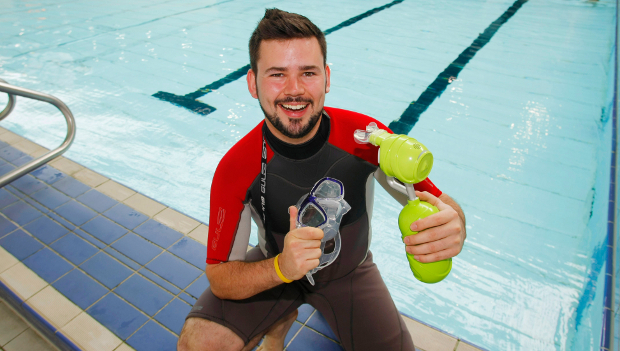Two Irish inventions have made the global top 20 shortlist of the 2015 James Dyson award.
A smart firefighter helmet invented by DIT design student Eilis Delaney and a new SCUBA system invented by University of Limerick student Cathal Redmond have been selected by Dyson engineers from over 600 entries worldwide.
Sense is a potentially life-saving smart firefighter helmet for assisting firefighters when navigating inside a burning building with poor visibility.
The system fits into firefighters’ helmets, providing the user with an improved perception of their environment, allowing them to navigate around dark spaces in a similar manner to bats.
An ultrasonic proximity sensor behind the front plate of the helmet is linked to a vibration motor. If the user encounters an obstacle, it is detected externally by the sensor, and triggers the internal vibration motor.
The Product Design student at Dublin Institute of Technology identified the problem of poor sensory feedback for firefighters by analysing the standard uniform currently in use.
“Firefighters face serious obstacles sensing, predicting and interpreting conditions when navigating their way around a burning building,” Delaney said.
“This is largely down to the thick-layered and heavy uniform they wear, which limits sensory feedback, and suppresses natural instinct – at a time when quick decisions based on limited fragments of information are essential.”
Using Sense, when an object is close, the ultrasonic proximity sensor’s beams are reflected quickly, with tactile feedback fast and intense.
However, when an object is farther away, tactile response will be slower and less intense, giving the firefighter vital additional information that they would not ordinarily have.
Cathal Redmond’s Express Dive, which overcomes the complexities of a scuba set-up by reducing the number and size of parts needed to breathe underwater, won the Irish leg of the award and is also shortlisted for the international version.
Both designs will be competing against over 600 students from 20 countries for the grand prize of €37,500 to help further develop their device.
TechCentral Reporters








Subscribers 0
Fans 0
Followers 0
Followers